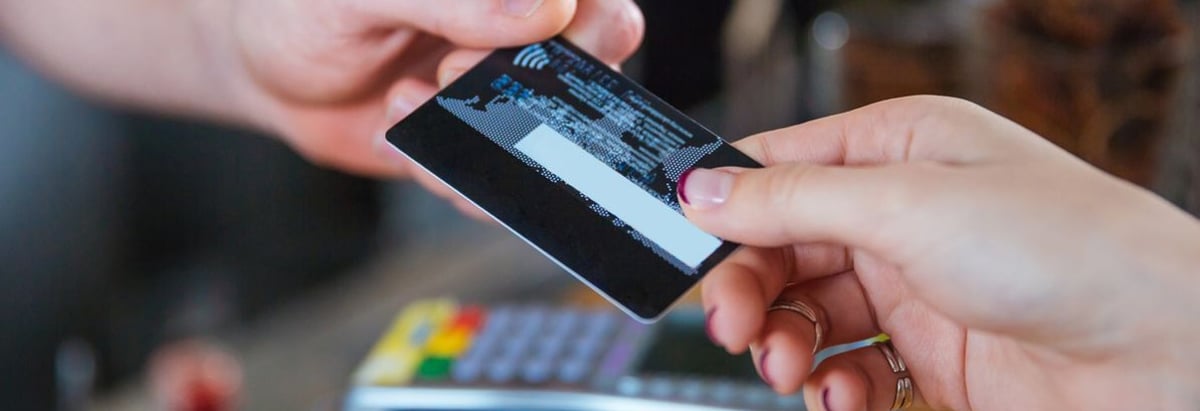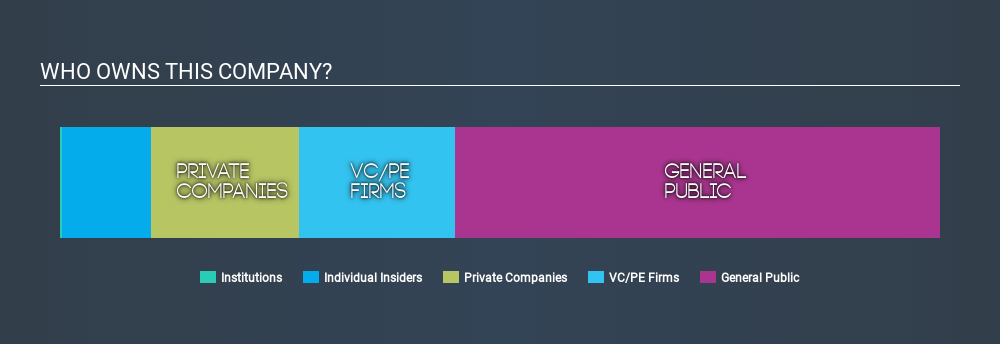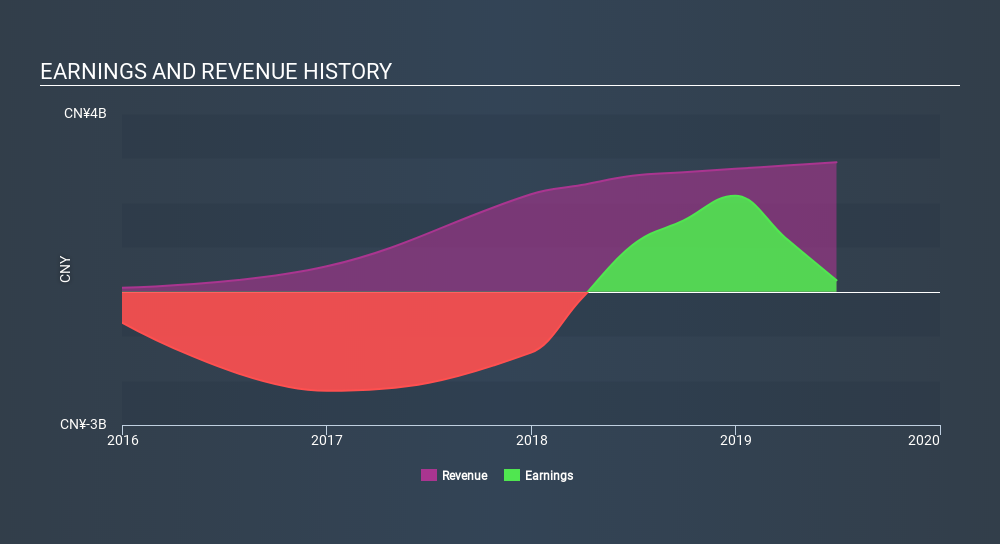- Hong Kong
- /
- Consumer Finance
- /
- SEHK:2051
Do Insiders Own Lots Of Shares In 51 Credit Card Inc. (HKG:2051)?

A look at the shareholders of 51 Credit Card Inc. (HKG:2051) can tell us which group is most powerful. Institutions often own shares in more established companies, while it's not unusual to see insiders own a fair bit of smaller companies. I generally like to see some degree of insider ownership, even if only a little. As Nassim Nicholas Taleb said, 'Don’t tell me what you think, tell me what you have in your portfolio.
With a market capitalization of HK$1.4b, 51 Credit Card is a small cap stock, so it might not be well known by many institutional investors. In the chart below, we can see that institutions are not really that prevalent on the share registry. We can zoom in on the different ownership groups, to learn more about 51 Credit Card.
Check out our latest analysis for 51 Credit Card

What Does The Lack Of Institutional Ownership Tell Us About 51 Credit Card?
Institutional investors often avoid companies that are too small, too illiquid or too risky for their tastes. But it's unusual to see larger companies without any institutional investors.
There are multiple explanations for why institutions don't own a stock. The most common is that the company is too small relative to fund under management, so the institition does not bother to look closely at the company. On the other hand, it's always possible that professional investors are avoiding a company because they don't think it's the best place for their money. 51 Credit Card's earnings and revenue track record (below) may not be compelling to institutional investors -- or they simply might not have looked at the business closely.

51 Credit Card is not owned by hedge funds. Hong Kong Xinhu Investment Co., Limited is currently the largest shareholder, with 18% of shares outstanding. Next, we have Haitao Sun and Tiantu Investments Limited as the second and third largest shareholders, holding 10% and 8.0%, of the shares outstanding, respectively. Haitao Sun also happens to hold the title of Chief Executive Officer.
A deeper look at our ownership data shows that the top 10 shareholders collectively hold less than 50% of the register, suggesting a large group of small holders where no one share holder has a majority.
While studying institutional ownership for a company can add value to your research, it is also a good practice to research analyst recommendations to get a deeper understand of a stock's expected performance. As far I can tell there isn't analyst coverage of the company, so it is probably flying under the radar.
Insider Ownership Of 51 Credit Card
The definition of an insider can differ slightly between different countries, but members of the board of directors always count. Management ultimately answers to the board. However, it is not uncommon for managers to be executive board members, especially if they are a founder or the CEO.
Most consider insider ownership a positive because it can indicate the board is well aligned with other shareholders. However, on some occasions too much power is concentrated within this group.
Our information suggests that insiders maintain a significant holding in 51 Credit Card Inc.. It has a market capitalization of just HK$1.4b, and insiders have HK$138m worth of shares in their own names. This may suggest that the founders still own a lot of shares. You can click here to see if they have been buying or selling.
General Public Ownership
The general public -- mostly retail investors -- own 55% of 51 Credit Card. This level of ownership gives retail investors the power to sway key policy decisions such as board composition, executive compensation, and the dividend payout ratio.
Private Equity Ownership
With an ownership of 18%, private equity firms are in a position to play a role in shaping corporate strategy with a focus on value creation. Some might like this, because private equity are sometimes activists who hold management accountable. But other times, private equity is selling out, having taking the company public.
Private Company Ownership
Our data indicates that Private Companies hold 17%, of the company's shares. It's hard to draw any conclusions from this fact alone, so its worth looking into who owns those private companies. Sometimes insiders or other related parties have an interest in shares in a public company through a separate private company.
Next Steps:
I find it very interesting to look at who exactly owns a company. But to truly gain insight, we need to consider other information, too. Case in point: We've spotted 3 warning signs for 51 Credit Card you should be aware of, and 1 of them is concerning.
Of course, you might find a fantastic investment by looking elsewhere. So take a peek at this free list of interesting companies.
NB: Figures in this article are calculated using data from the last twelve months, which refer to the 12-month period ending on the last date of the month the financial statement is dated. This may not be consistent with full year annual report figures.
If you spot an error that warrants correction, please contact the editor at editorial-team@simplywallst.com. This article by Simply Wall St is general in nature. It does not constitute a recommendation to buy or sell any stock, and does not take account of your objectives, or your financial situation. Simply Wall St has no position in the stocks mentioned.
We aim to bring you long-term focused research analysis driven by fundamental data. Note that our analysis may not factor in the latest price-sensitive company announcements or qualitative material. Thank you for reading.
About SEHK:2051
51 Credit Card
An investment holding company, operates 51 Credit Card Manager, an online credit card management platform in the People’s Republic of China.
Flawless balance sheet very low.
Market Insights
Community Narratives



